The 55th Munich Security Conference (MSC), broadly known as an important platform for discussing security policies, was held in Germany from February 15 through February 17, 2019. It evidenced some dramatic debating this year. The list of participants featured 500 persons, including forty heads of state and/or government and a hundred ministers. They considered the possibility of a new nuclear arms race in the wake of termination of the Intermediate Nuclear Forces (INF) Treaty, as well as the West’s inability to hammer out a unified stance on Iran, the uncertainties looming over NATO, the way that Brexit will affect Europe, and the impact that populism is wielding on the EU’s overall strategy.
#MSC2019 made a lot of headlines around the world. We have compiled reporting and analyses from leading international news outlets about last weekend's @MunSecConf: https://t.co/k5jYYZW0bn pic.twitter.com/6CUBpfAGH3
— Munich Security Conference (@MunSecConf) February 21, 2019
The MSC echoed the geopolitical keynotes of the World Economic Forum in Davos. For the first time in its history, it heard the expression of remarkable political discords. Although it was generally devoted to the problems brought on by the liberalistic world order, which the US presides over, it became all too clear that the liberal world had lost community of its interests.
The topic of the 55th MSC had been formulated as ‘Who will pick up the pieces of the disintegrating world order?’ The chairman of the gathering, Wolfgang Ischinger, said it had been selected in the wake of apprehensions of an upcoming collapse of the liberal world order.
The heads of state, foreign ministers, journalists and experts at this year's #MunichSecurityConference overwhelmingly focused their attention on the widening rift between #Europe and the #UnitedStates. Contributor @MunterCameron explains. https://t.co/lnLCv189DH
— RANE (@RANEnetwork) February 28, 2019
The EU, bewildered by a Cold War scenario, is ceding the initiative to the US – and likely opening up the prospects for own end
At the start of the Cold War, the US initiated the creation of NATO that would map out the doctrine of the West’s security against the USSR. But after the disintegration of the USSR and the affiliation of East-European countries with the EU and NATO, the US reached a level where it could set up a new world order without support from others. The European nations that have relied on the NATO security umbrella have long stopped investing in their own Armed Forces and defense industries and now they are compelled to put up with Washington’s aspirations.
Does the decline of the world order stem from Russia’s ‘intervention’ in Ukraine?
Accent was made at the opening of this year’s MSC on the allegations that the international order had degraded because of Russia’s interference in eastern Ukraine in 2014. On the face of it, no one ventured to mention the deployment of military bases near the Russian border in East Europe by the US in violation of its own earlier promises. The speakers seemed to drown in oblivion quite conscientiously the US unabated trading and the policies spearheaded against the Western values.
Instead, they said repeatedly that liberal democracy and free market were not the notions without an alternative anymore and that Russia and China were pitching this model against the authoritarian state-controlled capitalism, which they were allegedly imposing on the countries where they exercised influence.
It is pretty obvious that the US confidence in its ability to overstrain China and Russia without assistance from NATO and the EU has bred the syndrome of isolation in the EU. In all evidence, Washington is seeking to keep up the incumbent world order, scaring China and Iran with economic sanctions and simultaneously intimidating Turkey and Russia with economic sanctions and military maneuvering.
Iran's #Zarif thrashes #Trump, "US driven by pathological obsession” #munichsecurityconference 2019 https://t.co/hDGGOck9jK
— Ian T. Cruz | SRI (@ISCOSEU) February 25, 2019
Why do the Americans need it?
The US believes it is the only powerful nation in the world while the countries with developing economies and manufacturing sector are viewed as a threat to it. There’s slightly any doubt that tensions between the US and those nations are mounting.
America’s calamitous policies force Europe to sail its own boat
Western policymakers can’t help admitting that the era of the domination of the US-led collective West in the economy and the military sphere is a thing of the past now. America’s calamitous policies force the European to sail their own boat. Regular criticism of NATO on the part of the US Administration and its striving to conduct a self-styled policy in Eastern Europe have brought about the idea of a pan-European army, although it mostly enjoys support from France and Germany. They realize the policy line meted out by the US poses a threat to the EU, too, but they can’t undertake anything to counterbalance it at present.
The 55th Munich Security Conference exposed the divisions between the US and its European allies more graphically than in previous years. It is highly probable that Russia and China will make use of the situation in a bid to forge new alliances. Waving the slogan ‘God bless America’ Washington is trying hard to bind its partners by the rules of its choice. It obliges the NATO partners to build up their defense spending, and asks Germany to sever cooperation with Russia in the Nord Stream II pipeline project. It also urges the European countries to pull out of the Iran nuclear deal in order to join the American sanctions, to stop purchasing Chinese produce, and to block the access to the market of 5G technologies for Chinese companies. As for Turkey, the US calls on it to renounce the purchases of the Russian S-400 air defense complexes.
#MunichSecurityConference: China seeks mutually beneficial world order https://t.co/TsKyB9hfXrhttps://t.co/v847w4tZN9
— CGTN (@CGTNOfficial) February 14, 2016
The Americans craving for a new bloc in Europe together with Poland, Romania, Hungary, and the Balts
The ideas and demands voiced by the Americans didn’t elicit a response among the rest of participants in the MSC. The policies promulgated by Washington are a far cry from reality and they bring out a jingoistic approach to problems, thus pushing the world into a highly risky contention. The situation may escalate to a point where old partnerships will be ruptured and new alliances will rise up. The trans-Atlantic pact is going down to pieces and, quite probably, won’t re-emerge. The world in which the US is trying to make everyone live by its rules abounds in risks.
The signs of US efforts to set up a new bloc in Europe together with Poland, Romania, Hungary, and eastern Baltic states are getting increasingly clear. The Americans will most likely conduct the policies ignoring the Old Continent with Germany in the lead. They believe that the EU doesn’t have the stamina to stop Russia. On the contrary, they suspect Germany of clandestine cooperation with Moscow and of the efforts to expand the zones of German influence within the EU – something that Berlin failed to do during World War I and World War II.
On the other hand, by acting against China, Germany, Iran, Turkey, and Russia Washington motivates them towards a rapprochement with one another.
Turkish FM @MevlutCavusoglu rebukes Arab League Secretary General at the #MunichSecurityConference, says Turkey has a right to defend itself. pic.twitter.com/vVZuDunNdT
— Rudaw English (@RudawEnglish) February 18, 2018
Putin Doctrine caught the US unawares
Vladimir Putin, who took the floor at the MSC on February 10, 2007, outlined the contours of Russia’s new foreign policy. Hisspeechwaslabeled‘theMunichDoctrine’ afterwards. It suggests that a unipolar world is unacceptable and Russia will oppose the US global hegemony and pressure. The doctrine also indicates that the use of force shall be applied only on the basis of resolutions of the UN Security Council. Putin said in his speech that Russia, a land with a history going back 4,000 years and an independent policy, would never succumb to threats and would respond to them appropriately.
'When Russia is accused of something, no one requires any facts': Lavrov’s top quotes at #MunichSecurityConference https://t.co/QRTuXn6n8n pic.twitter.com/JTcm21o4YA
— RT (@RT_com) February 19, 2017
His speech at the MSC became the first harbinger of a global policy where Russia might play a central role. It set out the format of the foreign policy Moscow is conducting nowadays. Following the address to the Munich conference in 2007, Putin went over to energetic steps and offered a prompt reaction to the US policies in places like Georgia, Ukraine, Crimea, and then Syria.
Russia is reacting in the same way to the US actions and the policy that Turkey embarked on after the FETO attempted coup of July 15, 2016. As the Turkish government hasn’t completed the upgrading of its defense manufacturing sector so far, the country needs defense technologies from Russia and other countries and this inescapably pushes it towards confrontation with the US. If in the future Ankara thinks the US hasn’t given up collaboration with it and is trying to rectify the American-Turkish relationship, it will bump into new political, military and economic subversions organized by internal actors and the forces outside the country – with US standing behind their backs in any case.







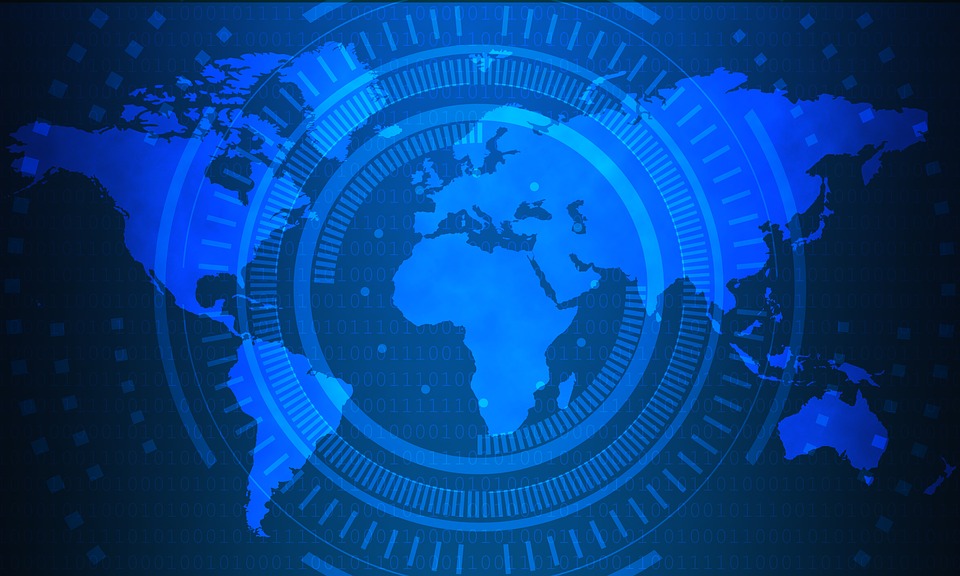




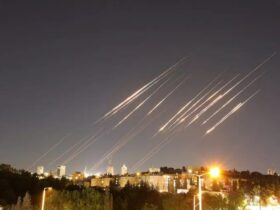
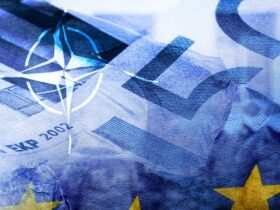
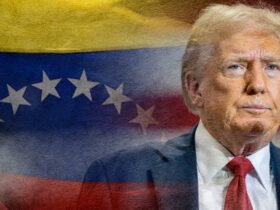
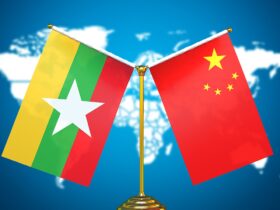

Leave a Reply